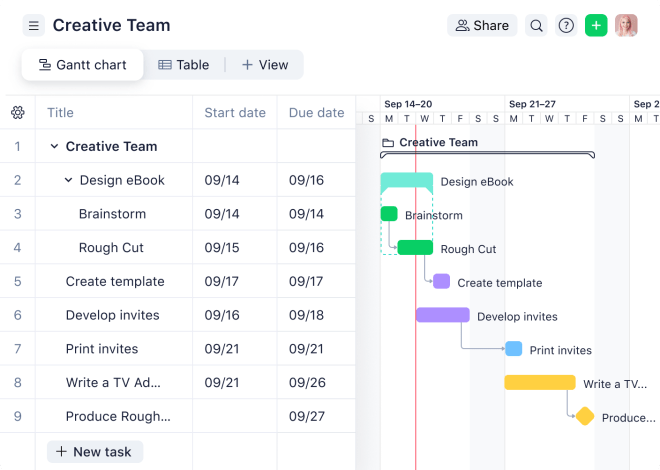The Best iPhone Emulators: A Comprehensive Guide
Choosing the right iPhone emulator can significantly impact your workflow. Whether you’re a developer testing apps, a gamer wanting to play iOS titles on your PC, or simply curious about the iOS ecosystem, selecting a powerful and reliable emulator is crucial. This comprehensive guide will delve into the top contenders, comparing their features, performance, and overall user experience. We will explore various options, considering both their strengths and weaknesses to help you make an informed decision.
Understanding iPhone Emulators and Their Uses
iPhone emulators are software applications that replicate the iOS environment on non-Apple devices, primarily Windows and macOS computers. They allow users to run iOS apps and games without needing an actual iPhone or iPad. This functionality is invaluable for various purposes. Developers utilize emulators for testing and debugging apps before release, ensuring compatibility and performance across different devices. Gamers can enjoy iOS games on their more powerful PCs, potentially achieving better graphics and frame rates. Furthermore, emulators provide a convenient way to explore the iOS ecosystem without the financial commitment of purchasing Apple hardware.
Types of iPhone Emulators
While numerous emulators exist, they generally fall into two categories: full-fledged emulators and limited simulators. Full emulators strive to replicate the entire iOS experience, including hardware features and system functionalities. Limited simulators, often provided by Apple for developers, offer a more constrained environment, primarily focusing on app testing and debugging within a controlled setting. The choice between these types depends heavily on your specific needs and technical expertise.
Top iPhone Emulators: A Detailed Comparison
1. iEMU
iEMU is a well-regarded emulator known for its relative ease of use and compatibility with a wide range of iOS apps. It boasts a user-friendly interface, making it accessible to both novice and experienced users. Performance varies depending on the app and the user’s system specifications, but generally, it provides a smooth experience for many common applications. However, iEMU might struggle with more graphically demanding games, resulting in lower frame rates or occasional glitches. Its compatibility with older iOS versions is a significant advantage for developers needing to test legacy apps.
2. Smartface
Smartface is a powerful emulator geared toward developers. It offers robust debugging tools and features tailored to the app development lifecycle. While not as user-friendly as some other options, Smartface provides a comprehensive environment for building, testing, and optimizing iOS apps. Its advanced features, such as real-time code editing and performance monitoring, make it a popular choice among professionals. However, its complexity might be overwhelming for users primarily interested in running apps rather than developing them.
3. Xcode Simulator
Xcode Simulator, provided by Apple, is the official tool for iOS app development. It offers a highly accurate simulation of the iOS environment, ensuring reliable testing and debugging. Being officially supported, it integrates seamlessly with Xcode, making it the preferred choice for developers working within the Apple ecosystem. However, it’s restricted to macOS, excluding Windows users. Furthermore, its focus on development means it’s less ideal for casual users looking to simply run iOS apps.
4. AirDroid Cast
AirDroid Cast takes a different approach by mirroring your iPhone screen to your computer. While not a traditional emulator, it offers a seamless way to access and control your iPhone from your PC. This is particularly useful for presentations or when you need to interact with your iPhone on a larger screen. However, it requires an active internet connection and relies on the functionality of your iPhone itself, unlike standalone emulators.
5. Other Notable Emulators
Several other emulators exist, each with its unique strengths and weaknesses. These include options focusing on specific aspects of iOS emulation, such as gaming performance or compatibility with particular apps. Researching these alternatives is recommended if the emulators mentioned above don’t meet your specific requirements. Always check reviews and compatibility before downloading any emulator.
Factors to Consider When Choosing an iPhone Emulator
Selecting the optimal iPhone emulator requires careful consideration of several key factors. Your choice should align with your needs and technical expertise. Let’s explore these crucial aspects:
- Performance: Consider the emulator’s ability to handle demanding apps and games smoothly. Look for reviews highlighting performance on various system configurations.
- Compatibility: Ensure the emulator supports the iOS versions and apps you intend to use; Check for compatibility lists and user feedback.
- Ease of use: Choose an emulator with a user-friendly interface, especially if you’re not technically inclined. Avoid complex setups and convoluted controls.
- Features: Assess the emulator’s features, such as debugging tools, performance monitoring, and app management capabilities. Select features that align with your needs.
- System Requirements: Ensure your computer meets the emulator’s minimum system requirements to avoid performance issues or crashes.
Troubleshooting Common Emulator Issues
Even with the best emulators, you might encounter occasional problems. Understanding common issues and their solutions can save you time and frustration; Below are some frequently encountered problems and their potential fixes:
- Slow performance: Close unnecessary background applications, upgrade your system’s RAM, or consider a more powerful computer.
- App crashes: Ensure the app is compatible with the emulator and iOS version. Try reinstalling the app or updating the emulator.
- Compatibility issues: Check the emulator’s compatibility list and consider alternative emulators if necessary.
- Graphical glitches: Update your graphics drivers, adjust emulator settings, or try a different emulator.
- Installation problems: Ensure you have the necessary permissions and follow the installation instructions carefully. Consult online forums for troubleshooting specific installation errors;
Troubleshooting often involves checking for updates, examining system requirements, and consulting online communities for solutions to specific problems. Remember, patience and persistence are key to resolving emulator issues effectively. Many common problems have well-documented solutions readily available online.
Choosing the right iPhone emulator is a crucial step for developers, gamers, and anyone wanting to experience the iOS ecosystem on their PC. By carefully considering the factors outlined above and understanding the strengths and weaknesses of various emulators, you can make an informed decision that best suits your needs. Remember to always download emulators from trusted sources to avoid malware or viruses. Regularly updating your chosen emulator will ensure optimal performance and access to the latest features and bug fixes. The best emulator will ultimately depend on your specific requirements and preferences. Through thorough research and testing, you can find the perfect tool to meet your needs.
Ultimately, the world of iPhone emulators offers diverse solutions catering to different user needs. From streamlined interfaces for casual users to sophisticated tools for developers, the perfect match is out there. With a little research and careful consideration, you can unlock the potential of iOS on your PC, expanding your digital horizons and boosting productivity. Remember to prioritize security and always download from reputable sources. Continuous exploration and experimentation will help you find the best emulator for your specific workflow.
This guide has provided a detailed overview of several leading iPhone emulators, highlighting their features and potential drawbacks. Through this analysis, you should now be equipped to navigate the world of iOS emulation with confidence and make an informed decision aligned with your specific needs and technical capabilities. The optimal choice is always dependent on individual preferences, so don’t hesitate to explore further and experiment to find the emulator that best fits your workflow.
Remember to always prioritize security and download from trusted sources to avoid potential malware or viruses. This careful approach will help you maximize your experience and ensure a smooth and productive journey in the world of iPhone emulation. By considering the factors we’ve discussed and continually evaluating your needs, you’ll be well-prepared to select the best emulator for your unique circumstances. Enjoy your enhanced access to the iOS ecosystem!
With the right emulator, the possibilities are endless.



